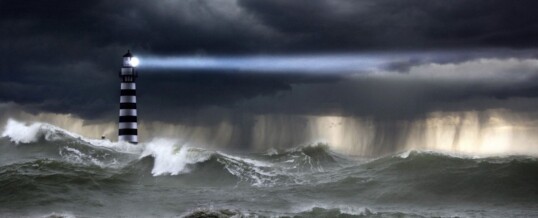
A verse from a song that I learned in Religious Education many years ago has been echoing in my head ever since I read this week’s scripture passages.
I saw Christ in wind and thunder.
Joy is tried by storm.
Christ asleep within my boat,
whipped by wind yet still afloat.
Joy is tried by storm.
Whether we are talking about the personal storms that I see each day in the hospital, the current global storms such as the pandemic and climate change, or the multi-generational storms of racism and cultural genocide, the storms of life seem to be unending. There are days when I say, “where is God?” or “How can God allow these things to happen?!” Yet even as I ask these questions (or on a particularly difficult day, even as I shout these questions into the solitude of my car on my drive home), I know that the answer to the first is: God is with us, right in the middle of the most difficult things. And the answer to the second is: it’s complicated.
God is with us. I remember reading today’s gospel story as a child and marveling at the foolishness of the disciples who were so upset about the storm when they could see that Jesus was right there. Of course, they weren’t going to drown! If Jesus was in the boat with you, the storm was more like an amusement park ride than a real storm. It would have been okay to be scared if they were kids, but adults should know better! As an adult, I have a lot more sympathy for the disciples and yet my child self was correct: if I know that Jesus is with me, what is there to worry about?
Each Sunday when we celebrate the Eucharist, we are proclaiming that Jesus is with us in the worst storms of our life. The Eucharist is the reminder that they paschal mystery is not simply an historical event that was completed nearly two thousand years ago. The suffering, death and resurrection of Jesus exist both within and outside of time. Yes, they are part of our historical past; but they are also part of the eternal now. Whenever we are suffering, we are side by side with Jesus on the cross. The suffering is real, but we are not alone; and because we are not alone, suffering will never be the end of the story.
Of course, even if suffering is not the end of the story, I am still left with the question of why suffering is necessary. The answer to that question is found in God’s words to Job: “Where were you when I laid the foundation of the earth? Tell me if you have understanding. Who shut in the sea with doors when it burst out from the womb? – when I made the clouds its garment, and prescribed bounds for it …” The universe – time and space – is incredibly complicated, and God keeps it all in balance. When I say, “how can God allow this?” I am presuming that I am capable of understanding how everything is held in balance; and I am presuming that God has forgotten! The problem is not with asking why God allows suffering – asking questions is part of growing in faith. The problem is in my unspoken assumption that I know a better way.
Today’s readings are a reminder that faith means trusting God even when we do not understand.
Pam Driedger
JUN
2021

About the Author: